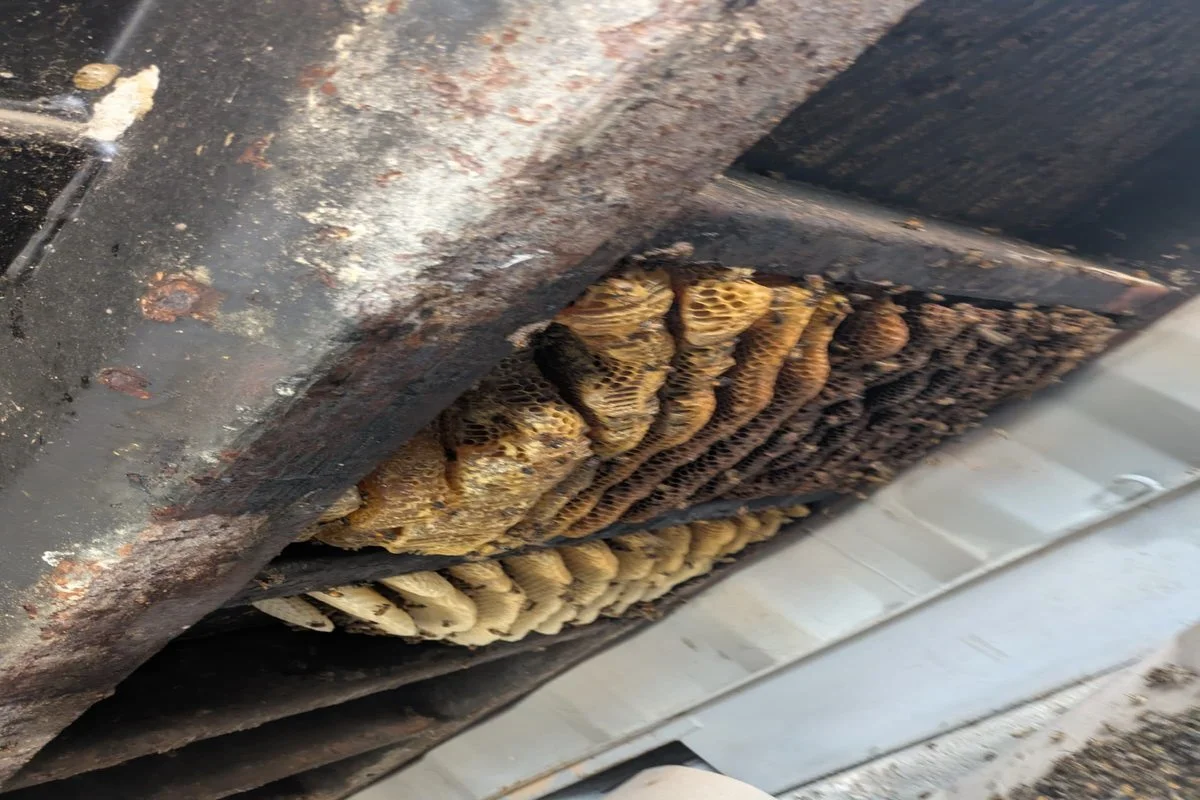How to Handle a Swarm in Tampa, FL Without Harming Bees
If you live in Tampa, FL, spotting a buzzing swarm of bees in your yard, on your roof, or near a tree can feel alarming. Your first instinct might be to grab a can of insect spray or call an exterminator — but that’s the last thing you should do. Bees are essential pollinators, and in Florida’s delicate ecosystem, their survival has a direct impact on our food supply, gardens, and biodiversity.
In this guide, you’ll learn how to handle a swarm in Tampa without harming the bees, why swarming happens, and who to call for safe, eco-friendly removal.
🌼 Why Bee Swarms Happen in Tampa, FL
Florida’s warm climate, especially in spring and early summer, is the perfect environment for honeybees to reproduce. Swarming occurs when a healthy hive becomes too crowded, and about half of the bees — along with their queen — leave to start a new colony.
Key reasons bees swarm in Tampa:
Seasonal change – Warmer weather encourages hive expansion.
Overcrowding – Having too many bees in one hive can lead to relocation.
Queen replacement – A new queen triggers part of the hive to move out.
Nearby food sources – Blooming flowers, fruit trees, and urban gardens attract bees.
Most swarms are temporary and will move on within a day or two, but if they settle into a wall, attic, or tree hollow, they’ll start building a new hive — and that’s when professional help is needed.
🐝 Why You Should Never Harm or Kill Bees
Killing a swarm may seem like a quick fix, but it comes with serious consequences:
Environmental damage – Bees are critical pollinators for crops, flowers, and wild plants.
Legal concerns – In Florida, honeybees are considered beneficial insects, and improper extermination can lead to fines in certain cases.
Attracting more pests – Dead bees and leftover honey can draw ants, roaches, and rodents.
Loss of a natural resource – Every removed swarm can be relocated to a beekeeper instead of being destroyed.
Eco-friendly bee removal is the safest and most sustainable option for both you and the bees.
🚫 What NOT to Do If You See a Swarm
When you spot a swarm in Tampa, avoid these common mistakes:
❌ Don’t spray insecticides – This kills bees and contaminates the area.
❌ Don’t try to knock the swarm down – You risk getting stung and scattering bees.
❌ Don’t seal entry holes immediately – Trapped bees will try to escape, often entering your home.
❌ Don’t block their access to food or water – This stresses the bees and can make them aggressive.
✅ What TO Do When You Spot a Swarm in Tampa
Here’s a safe, step-by-step approach:
1. Stay Calm and Keep Your Distance
Bees in a swarm are usually less aggressive because they’re focused on finding a new home. However, disturbing them can trigger defensive behavior. Keep children and pets at least 20 feet away.
2. Observe From a Safe Spot
Bee swarm removal in Tampa, FL
Take note of:
How long has the swarm been there
The location (tree branch, wall, roof, etc.)
Any visible hive-building activity
This information helps a professional bee removal expert in Tampa assess the situation.
3. Call a Licensed Bee Removal Service
Contact a company that specializes in live bee relocation, not general pest control. Eco Bee Removal Tampa uses humane methods to safely transfer the swarm to a beekeeper, where they can thrive.
4. Keep the Area Clear
Don’t allow people to gather around the swarm — more movement means more chances for bees to feel threatened.
5. Let the Professionals Relocate Them
A trained bee removal specialist will:
Locate the queen and move the swarm safely
Place the bees in a transport hive
Relocate them to a local beekeeper or farm
🌱 Why Live Bee Relocation Is the Best Option in Tampa
Tampa’s mix of urban landscaping, backyard gardens, and nearby farmlands makes it a prime bee habitat. Relocating bees instead of exterminating them benefits everyone:
For the Environment:
FL – safely relocating a large honeycomb from inside a structure without harming the bees.
Maintains pollination for fruit trees, flowers, and crops.
Supports biodiversity in Florida’s ecosystems.
For You:
Avoids property damage from rotting honeycombs left behind after extermination.
Keeps your home pest-free.
For the Bees:
Gives them a safe home to rebuild and keep pollinating.
🏡 How to Prevent Future Bee Swarms Near Your Home
Once the swarm is gone, take steps to bee-proof your property:
Seal gaps & cracks in walls, soffits, and rooflines.
Cover vents and chimneys with fine mesh screens.
Remove abandoned hives to prevent new swarms from moving in.
Avoid leaving sugary drinks or open compost outdoors.
A professional bee-proofing service can ensure your home stays swarm-free.
📍 Tampa’s Bee-Friendly Climate
Tampa’s mild winters and abundant plant life make it a hotspot for honeybees. Popular forage plants here include:
Orange blossoms
Palm flowers
Hibiscus
Wildflowers in nearby fields
That’s why bee swarms in Tampa are common — but with the right approach, you can keep yourself safe and protect these important pollinators.
🐝 Eco Bee Removal – Your Tampa Live Bee Removal Experts.
At Eco Bee Removal, we specialize in safe, humane, and eco-friendly bee swarm removal in Tampa and surrounding areas. Our team has years of experience handling swarms from trees, walls, attics, and commercial buildings — always to save the bees.
Why choose us:
✅ Licensed and insured
✅ 100% live bee relocation
✅ Affordable and eco-friendly
✅ Available for emergency swarm removal
📞 Call now: (888) 282-1886
🌐 Visit: www.ecobeeremoval.com
Final Thoughts
Seeing a bee swarm in Tampa might be unnerving, but it’s a sign of a healthy bee population. Instead of panicking, take the right steps to protect yourself and the bees. With professional, humane removal, you’ll keep your property safe and help preserve one of Florida’s most valuable pollinators.


